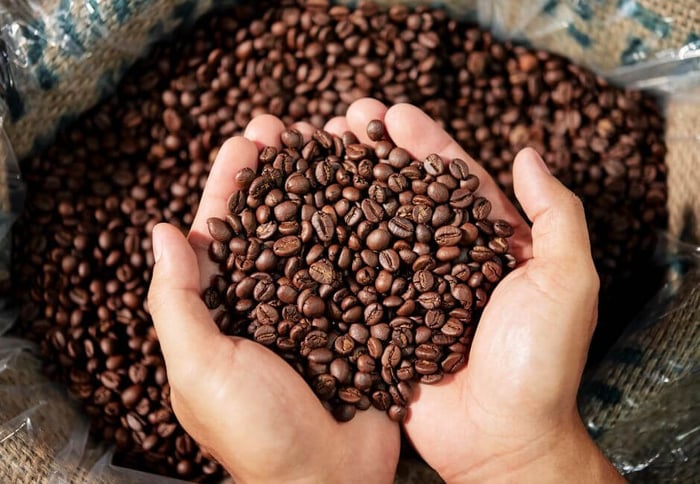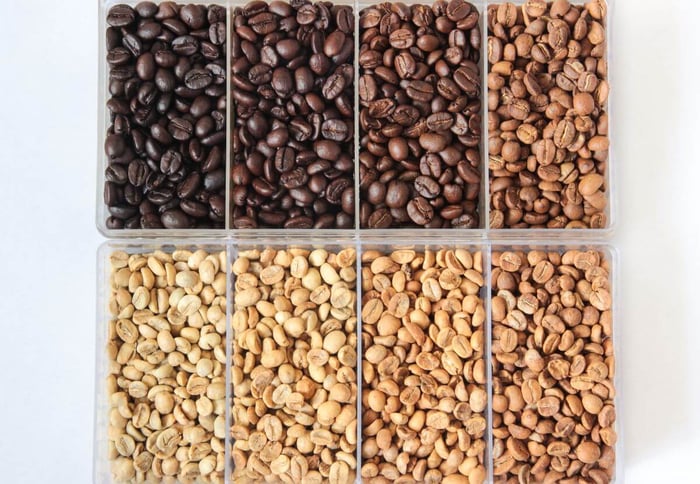Coffee is not just a beloved beverage; it's also a daily ritual and a source of comfort for millions of people worldwide. Beyond its ability to provide an energizing boost, coffee has been associated with various health benefits.
One intriguing claim is that coffee can suppress appetite, leading to weight management and improved dietary control. But is there any truth to this notion? Can coffee truly curb our cravings and help us eat less?
Let's delve into the science and unravel the mysteries of coffee's potential impact on appetite.
The Stimulating Effects of Coffee
At the heart of coffee's ability to influence appetite lies its primary active ingredient: caffeine. As a natural stimulant, caffeine has a profound impact on our central nervous system, leading to increased alertness and enhanced cognitive function. It also affects various neurotransmitters, including adenosine, dopamine, and serotonin, which play a role in regulating hunger and satiety.
Check out our caffeine content database for all your favorite coffee beverages.
The Role of Caffeine in Appetite Regulation
Research suggests that caffeine can influence appetite-related factors, albeit in a temporary and modest manner. While individual responses may vary, here are some ways in which coffee and its caffeine content may affect appetite:
1. Increased Energy Expenditure
Caffeine has been shown to stimulate thermogenesis, the process by which our bodies generate heat and burn calories. By increasing energy expenditure, coffee can potentially contribute to weight management efforts and appetite control.
2. Enhanced Satiety
Several studies have demonstrated that caffeine can increase feelings of fullness and reduce hunger. This effect may be attributed to caffeine's impact on specific hormones, such as peptide YY (PYY) and leptin, which help regulate appetite and contribute to the sensation of satiety.
3. Minimized Food Cravings
Coffee consumption has also been associated with a potential reduction in food cravings, particularly for sweet and high-fat foods. By curbing these cravings, coffee may indirectly contribute to a decrease in overall calorie intake.
The Timing and Amount Matters
While the evidence suggests that coffee and caffeine can have an influence on appetite, it's important to consider the context in which these effects occur. Factors such as timing and amount play a significant role in determining the extent to which coffee can suppress appetite.
1. Timing of Coffee Consumption
The timing of coffee intake in relation to meals appears to be crucial. Consuming coffee before a meal may have a greater impact on appetite suppression compared to consuming it afterward. Pre-meal coffee may help promote a sense of fullness and reduce subsequent food intake.
2. Individual Sensitivity and Tolerance
Individual variations in caffeine sensitivity and tolerance can influence the appetite-suppressing effects of coffee. Some individuals may experience a more pronounced reduction in appetite, while others may be less responsive. It's important to be mindful of personal caffeine tolerance and to listen to your body's signals.
The Importance of a Balanced Approach
While coffee may offer potential benefits in appetite control, it's crucial to adopt a holistic approach to weight management and overall well-being. Relying solely on coffee as a means to suppress appetite is unlikely to yield sustainable results. Instead, consider the following strategies to support healthy eating habits:
1. Nutrient-Dense Diet
Focus on consuming a balanced diet that includes a variety of whole foods rich in essential nutrients. Emphasize fruits, vegetables, lean proteins, whole grains, and healthy fats to support overall health and satiety.
2. Mindful Eating
Practicing mindful eating involves paying attention to hunger cues, eating slowly, and savoring the flavors and textures of food. This mindful approach can help foster a better connection with your body's signals of hunger and fullness.
3. Regular Physical Activity
Engaging in regular physical activity is crucial for maintaining a healthy weight and overall well-being. Incorporate both cardiovascular exercise and strength training into your routine to support a balanced metabolism and enhance appetite regulation.
4. Hydration
Staying adequately hydrated is essential for proper bodily functions, including appetite regulation. Drinking enough water throughout the day can help prevent dehydration, which can sometimes be mistaken for hunger.
5. Adequate Sleep
Prioritize quality sleep as part of your overall health regimen. Lack of sleep can disrupt hunger-regulating hormones and lead to increased appetite and cravings. Aim for seven to nine hours of quality sleep each night.
Conclusion
While the idea of coffee suppressing appetite may sound appealing, it's important to approach it with realistic expectations and within the context of a balanced lifestyle.
While coffee and its caffeine content can offer temporary appetite-suppressing effects, they should not be relied upon as a sole strategy for weight management or dietary control.
Incorporate coffee into your routine mindfully, considering the timing and dosage that works best for you. Enjoy the aroma, taste, and social aspects of coffee, but remember that a holistic approach to health, including a nourishing diet, regular physical activity, and mindful eating habits, is key to achieving sustainable and long-term well-being.
So, the next time you reach for your favorite cup of coffee, savor it for all its sensory delights but also embrace the broader picture of a healthy lifestyle. Let coffee be a companion on your journey to balanced living, where it can complement your efforts toward mindful nourishment and overall vitality.









